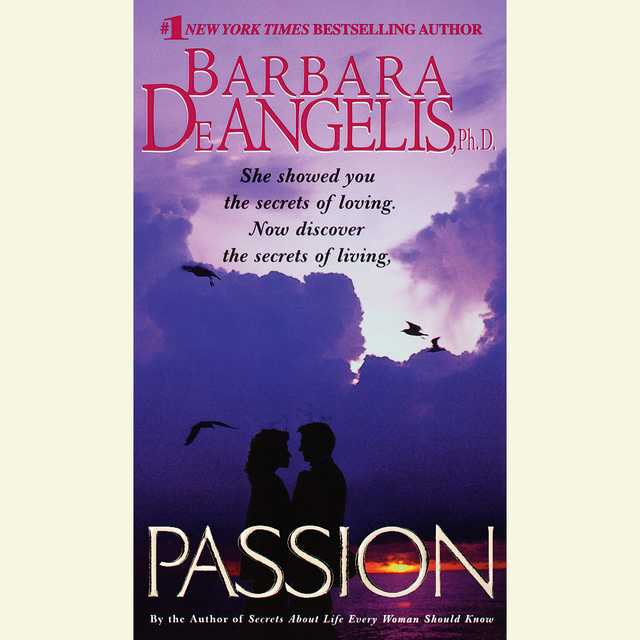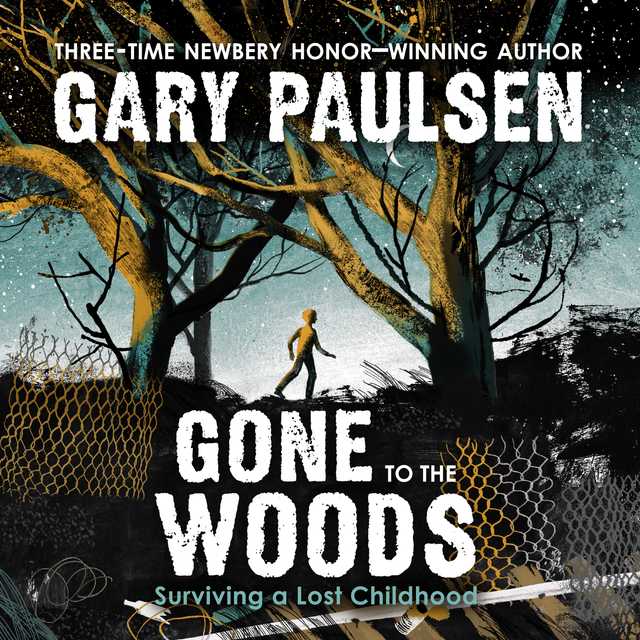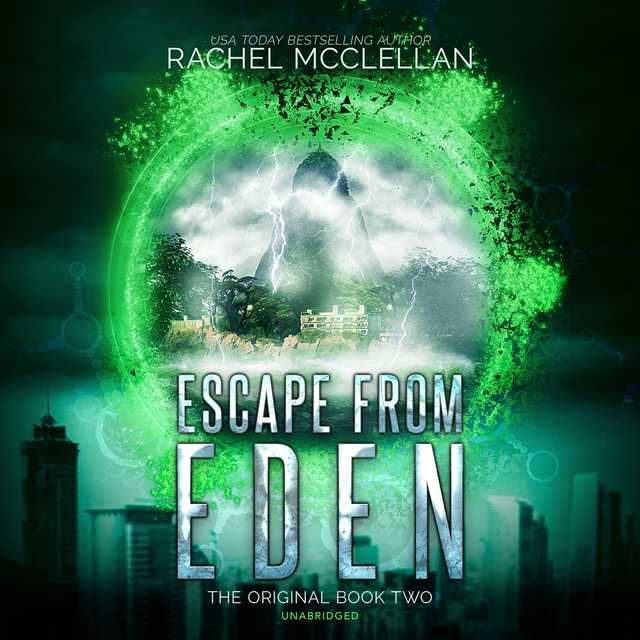The Honest Truth About Dishonesty Audiobook Summary
“A lively tour through the impulses that cause many of us to cheat, the book offers especially keen insights into the ways in which we cut corners while still thinking of ourselves as moral people.” — Time
Dan Ariely, behavioral economist and New York Times bestselling author of Predictably Irrational and The Upside of Irrationality, returns with a thought-provoking work that challenges our preconceptions about dishonesty and urges us to take an honest look at ourselves.
Does the chance of getting caught affect how likely we are to cheat?
How do companies pave the way for dishonesty?
Does collaboration make us more or less honest?
Does religion improve our honesty?
Most of us think of ourselves as honest, but, in fact, we all cheat. From Washington to Wall Street, the classroom to the workplace, unethical behavior is everywhere. None of us is immune, whether it’s a white lie to head off trouble or padding our expense reports. In The (Honest) Truth About Dishonesty, award-winning author Dan Ariely shows why some things are easier to lie about than others; how getting caught matters less than we think in whether we cheat; and how business practices pave the way for unethical behavior, both intentionally and unintentionally. Ariely explores how unethical behavior works in the personal, professional, and political worlds, and how it affects all of us, even as we think of ourselves as having high moral standards. But all is not lost. Ariely also identifies what keeps us honest, pointing the way for achieving higher ethics in our everyday lives.
With compelling personal and academic findings, The (Honest) Truth About Dishonesty will change the way we see ourselves, our actions, and others.
Other Top Audiobooks
The Honest Truth About Dishonesty Audiobook Narrator
Simon Jones is the narrator of The Honest Truth About Dishonesty audiobook that was written by Dan Ariely
Simon Jones has been featured in nine Broadway productions, was Bridey in PBS’s Brideshead Revisited, and the voice of Arthur Dent in the acclaimed Hitchhiker’s Guide series.
About the Author(s) of The Honest Truth About Dishonesty
Dan Ariely is the author of The Honest Truth About Dishonesty
More From the Same
- Author : Dan Ariely
- Payoff
- The Predictably Irrational
- Dollars and Sense
- The Upside of Irrationality
- Irrationally Yours
- Publisher : HarperAudio
- Abraham
- American Gods [TV Tie-In]
- Dead Ringer
- House of Sand and Fog
- Prey
The Honest Truth About Dishonesty Full Details
| Narrator | Simon Jones |
| Length | 8 hours 35 minutes |
| Author | Dan Ariely |
| Category | |
| Publisher | HarperAudio |
| Release date | June 05, 2012 |
| ISBN | 9780062209320 |
Subjects
The publisher of the The Honest Truth About Dishonesty is HarperAudio. includes the following subjects: The BISAC Subject Code is History, Social History
Additional info
The publisher of the The Honest Truth About Dishonesty is HarperAudio. The imprint is HarperAudio. It is supplied by HarperAudio. The ISBN-13 is 9780062209320.
Global Availability
This book is only available in the United States.
Goodreads Reviews
Ayse_
August 11, 2018
This is a truly awesome book. Not only it is very easy to read and understand, but it has study designs that are so witty, I feel I am getting smarter just by reading it. The information presented here is so important that anyone in a leadership position must be aware of this. It is very well in accord with the data from the book 'Pathological Altruism` by B. Oakley and points out some of the misinterpretations presented in `The Invisible Gorilla`. If you are interested in why people lie and cheat, how a bad apple can ruin the whole basket and how to prevent these, read this book. Also read this just to have some fun in human behaviors.
David
August 14, 2012
How can such a depressing book be so much fun to read? Dan Ariely is an excellent author; I've read two of his previous books, and I haven't been disappointed yet. Ariely combines a light-hearted writing style, a solid set of psychology studies (many of which he personally conducted), and a big dose of common sense. Many of Ariely's findings are not intuitive at first glance--but he is able to explain his findings and make them understandable to the reader.Ariely shows why we cheat--but with a limit. We do not cheat to the maximum extent possible, even when it is possible to get away with it. Instead, most people think of themselves as honest. We cheat somewhat, but not enough to call into question our self-image of being "basically honest". The book describes a bunch of psychology experiments where subjects are able to cheat without obvious consequences, and thereby earn some extra money. Ariely does an excellent job at showing the various factors that inhibit or encourage dishonesty. He discusses cheating on tests, politicians and bankers (bankers cheat more than politicians!), golf players (who tend to cheat a lot!), cheating by people of different nationalities (all nationalities and cultures tend to cheat about the same amount), cheating by people in groups, and by religious people (no different from non-religious).Ariely discusses plagiarism by students, and ordered an essay on the subject of cheating from an essay mill. He received an essay consisting of gibberish that wouldn't be satisfactory for any student. He concludes that essay mills are not a problem. But, I think that this single bit of anecdotal evidence is not exactly convincing.Ariely constantly looks for approaches that may help to reduce cheating on tax forms, insurance claim forms, and on college tests. He comes up with a number of good, practical suggestions, none of which is going to be used very much in the near term. This is a fun book, easy to read, and absolutely fascinating.
Daniel
June 15, 2018
It's strange to say, but I never expected a book on dishonesty to be so tame...even small. The book is a look at dishonesty, especially cheating, and covers the author's own experiments and what they tell us about cheating. The most important points are these: (1) We're not purely rational cheaters; we usually don't cheat to the fullest extent possible, we typically just fudge things in our favor. Thus, we're also sensitive to self-image. (2) We cheat much less when we're given subtle reminders of our moral codes (or any moral codes). (3) We are more likely to take advantage of "fuzzy" reality to fudge in our favor. (4) Small acts such as wearing counterfeits makes larger forms of cheating more permissible. (5) Creative people tend to be more dishonest. (6) Witnessing certain types of dishonesty make us more likely to cheat (though we are less likely to cheat if we witness someone from a different group doing it)...And there are more main points. I like that the book draws conclusions from the author's own experiments. I've read many good books recently that tackle big questions. But most of them have had to tackle those big questions by drawing from a variety of research that is already available, usually with small additions from their own experiments. This book, on the other hand, is based almost entirely on experiments conducted and designed with colleagues. And the conclusion, the "Fudge Theory of Cheating", that people tend to cheat only to the extent that they are able to maintain their own image of virtue appears to be (provisionally) valid across a range of cultures. So...nicely done. And yet, I still think it's only the beginning of a useful theory. A next version of this book would have to answer pertinent questions: What is the difference between normal fudgers and full-on sociopaths; when do fudgers become full-on cheaters; what is the relationship between shared social norms and cheating (or culture); how does group competition influence cheating...if the author can tackle these questions, I believe he'll be closer to an actual theory of cheating. My criticisms may be somewhat unfair. After all, now we're talking more about norm creation and acceptance than cheating. (Think also about norms during war. Think about how rules governing the conduct of war become established, reinforced, relaxed, and abandoned...this might give you deeper insights into rules and cheating than what we see in the experiments in this book.)So, when I say the book is tame, I mean that there is no tackling big important questions about morality. There is no consideration of Hannah Arendt's "Banality of Evil" -- how normal people can come to perpetrate mass atrocities; or how good-intentioned individuals come to rationalize their way into evil. The book is also mute about larger questions of governance and social ontology. What happens when we live in places that are weakly governed or where there are fewer shared norms? How do well-governed places with shared understandings of the world break apart over time? As an International Relations scholar, I've had to consider issues of nation or organization-wide corruption, regime-building, nation-building, and cooperation within anarchy...the themes here seem small (sometimes artificially made so), and that is one of the problems of positivist science...you can only make these kind of judgments when the world is made small. Also, I feel like the book is incomplete without talking about prospect theory. In most of the experiments, cheaters cheated to get small gains, but prospect theory shows that people will take much higher chances to rectify perceived losses. Prospect theory should be an important part of this book because it could help to fill in an important theoretical puzzle -- why do we just cheat a little bit? If people are more sensitive to losses than gains, then this might explain why we only cheat a little. Perhaps something makes us cautious about punishment (even when we can't see it or we're not sure what the punishment is). But six years from the book's release there is an even bigger problem: What happens, as has happened now, when there is an utter nation-wide moral collapse...when no amount of honesty, lying, cheating is too absurd and a group wants to change the very definition of morality to fit their habitual cheating, lying, and deceit? What happens when -- by ideology -- cheating is something only your enemy can ever do?As someone who has myself written tame, small things...I will congratulate Mr. Ariely on writing an amusing book, with some minor practical insights. But I will also urge him to do what is most needed: Think big, think impactful!
Aryn
May 16, 2012
When I was in college I learned a bit about the Simple Model of Rational Crime which basically states that people lie/cheat by rationally looking at the pros and cons and make a decision based on that. Needless to say, this never sat right with me. People don't make rational decisions, they just don't.In this book Ariely puts forth another theory, one that he calls the Fudge Factor. The theory goes that there are basically two opposing forces when we decide whether to lie or cheat. One of the forces is that we want to think of ourselves as good and righteous people. The other force is that we want to get more out of situations. So the question is: how much are we willing to "fudge" the truth and still think of ourselves as honest and good people?Through quite a few experiments, Ariely explores this, along with what may influence it in one way or another. Personally, these theories and experiments sat a lot better with me than the SMORC ever did. The author makes lying and cheating an incredibly interesting topic, and the experiments are novel and informative. The author is clearly an entertaining person and knows how to tell a good story. This book basically felt as though he wanted to show off his super-awesome experiments and findings, excitedly. It made it a fun read.My biggest complaint is that in all the experiments the reward far outweighed the consequences of being caught. What about in situations, like cheating on a spouse, where the consequences could possibly destroy lives? What about when the consequences outweigh the reward, and yet we lie/cheat anyway?Ariely, what would you make of this?: A few years back, my boyfriend at the time had a soft-top Jeep. One morning we came outside to find that someone had cut out the back window, and gotten into the car. The thief left all the expensive electronics (stereo, ipod, etc), but took all the change off the floor. It seemed like the guy had gone through quite a lot of effort for a fairly minuscule reward.(Book Received Through Giveaways)
Jaylia3
April 07, 2012
Entertaining, eye-opening, disturbingThis funny, fascinating, personal paradigm shattering book is in a genre I love, books that make me examine my thinking process, but this one caused me more soul searching than any other I’ve read. According to the Simple Model of Rational Crime (SMORC) we decide whether or not to be dishonest based on a logical, mathematically calibrated cost-benefit analysis, and we’d all be as dishonest as we could be as long as it brought us a benefit greater than the likely cost. Fortunately, author Dan Ariely discovered that people aren’t as cold-bloodedly calculating as that. Unfortunately, the news about human morality isn’t all good.Ariely is very skilled at conceiving, conducting and describing experiments that tease apart the tangle of human motivations. According to what he’s discovered, we’ll cheat, lie and steal, but only as much as we can rationalize because we want to be able to feel good about ourselves. We’re all capable of dishonesty, and being natural story tellers we’re extremely adept at creating perfectly logical seeming explanations justifying our less than moral actions, though we rarely understand exactly why we make the choices we do. We invariably underestimate how much we are influenced by a myriad of circumstances ranging from conflict of interest to how tired we are feeling.Since we want to see ourselves as good, most of us never stray far from the straight and narrow path, but small frequent transgressions can create bigger problems than the egregious acts of a few bad apples. Our collective peccadilloes can wreck havoc, but with an improved understanding of the situations that increase dishonest behavior Arliey hopes his book can be a guide for corrective actions and legislation.
Mark
December 10, 2017
Fantastic book and very insightful. The research presented is compelling and surprising... and often concerning. To know about it is to be far better prepared to recognize why people do what they do. There are helpful suggestions to recognize when I am not being fully honest and to align my own actions better with the integrity that I perceive myself to have. VERY helpful and super insightful. Thanks yet again Dan, for an amazing book.
Oana
April 17, 2013
My rating is 5 because it is that kind of book which made me reflect upon my own behaviour. On the one hand, because of some mistakes and the stories I told to myself, and on the another hand because it was a confirmation for the times I felt really bad, as I was aware of my action. First thoughts when trying to predict what is the book subject, were that it's most probably a book about cheating in relationships and cheating for becoming richer. Sorry to disappoint you, but it's not about cheating in relationships as you might have expected too. Instead, you get some conclusions based on experiments. I was always expecting numbers, but by the end of the book you get a sense that Dan is critic enough not to draw conclusions out of superficial experiments.Most interesting aspects found out:- we are more likely to cheat if we know that others will benefit from our dishonest action- the stories we tell to ourselves not to feel bad about ourselves when we are dishonest- that the cheating level is about the same in different countries (experimented in USA, Israel, Italy, Turkey, Canada and England).Two particular passages that I found particularly powerful are:"Most people cheat just enough to still feel good about themselves.""This experience taught me that sometimes (perhaps often) wedon’t make choices based on our explicit preferences. Instead,we have a gut feeling about what we want, and we go through aprocess of mental gymnastics, applying all kinds of justificationsto manipulate the criteria. That way, we can get what we reallywant, but at the same time keep up the appearance—to ourselvesand to others—that we are acting in accordance with our rationaland well-reasoned preferences."
Farhana
June 28, 2017
Either 3.8/5 or 4.2/5 .This one is intriguing. Ariely's writing is easy to follow. It's so fluent, spontaneous and most importantly, he explained everything in simple words with examples & experiments avoidingcomplex theories & technical jargon. He discussed psychology behind dishonesty. And if you
Alex
October 08, 2019
Excellent review on one of the most important part of people behavior - lying.
Dale
April 03, 2012
To be published in June of 2012 (DWD's Reviews received an uncorrected proof advance copy) by Harper.Dan Ariely's The (Honest) Truth About Dishonesty is a fun look at a serious topic - lying. Ariely, a professor of behavioral economics at Duke University, describes his simple experiments and details his results in a light, easy to understand way. His results are often surprising and counter-intuitive.For example, it is often considered that people are dishonest because they have calculated the risk of being caught and the reward if they get away with the dishonesty and act accordingly. Ariely demonstrates that this is incorrect and spends the rest of the book showing what conditions are more likely to cause dishonest behavior and what conditions decrease dishonesty.This could have been a stupefyingly dull book, but Ariely deft touch makes it a very fun and very quick read. http://dwdsreviews.blogspot.com/2012/...
Ooga
January 23, 2023
Had to read this for accounting ethics. Really interesting study on lying and dishonesty in everyday life. I thought the “fudge factor” theory was interesting, the idea that our selfish impulse to lie and desire to see ourselves as good moral people are in conflict with each other. Because of this, we lie/cheat just enough to get ahead and serve ourselves but not enough so that we begin to feel bad about ourselves.
Shiri
April 18, 2013
Loved the newest installation from Dan Ariely. I'm a huge fan so I'm already biased, but this book was a breezy read and very insightful. It was also disturbing and slightly distressing, as the main premise is that most harm to society comes from normal people each cheating just a little bit, then rationalizing it to fit in our personal "fudge factor". With connections to many great researchers, including Roy Baumeister of "Willpower" fame (among others), Ariely presents a delicate balance between wanting to conceive of ourselves as honest human beings and wanting to maximize gain. Ego depletion and the "what-the-hell" effect can induce us to cheat more. Even creativity is not safe, as Ariely's inventive experiments include one that shows a correlation between lying and creativity: the more creative we are, the more creative stories we can spin to justify our behavior.I will point out one issue that bothered me throughout the book, and which Ariely briefly mentions near the end of it: the "matrix" task on which a large portion of these experiments relies on, is not really a task that people perform on a regular basis. It's possible that cheating in laboratory conditions is higher (or lower! as in the cultural comparison Ariely discusses) depending on the context in which people are in. It would be fascinating to see if the conclusions would hold in more mundane, everyday tasks.All in all, a great book and highly recommended, especially for Ariely aficionados. If you're thirsty for more Ariely and have finished his other books, you should also check out his free Coursera class.Finally, a word of warning: If you're a normal human being who has ever in your life cut corners in some way, be prepared to painfully release the conception of yourself as a good and honest person. Ariely's no-bs approach that taking a pencil from the office is qualitatively identical to ripping off the public in Wall Street may well send you to your therapist's office -- or to the confessional -- in an urgent need to "reset" your perception of yourself as a decent person. And yes, Ariely talks about that too(!), including a brief discussion of Yom Kippur and other religious holidays as resetting rituals. As for me, I'm going to wash my filthy hands and go atone for my sins.
Alain
October 03, 2012
"The (Honest) Truth About Dishonesty: How We Lie to Everyone - Especially Ourselves" by Dan Ariely is a fascinating look at cheating and dishonesty. Backed by research, Ariely provides explanations for the unethical behavior that seems to be endemic from Washington to Wall Street, the classroom to the workplace, and everywhere else you turn.It is interesting to see that irrational forces are often behind whether we behave ethically or not, and cheating and dishonesty are not merely derived from a cost-benefit analysis. The more engaging element of this book is Ariely's ability to make his research interesting, engaging, and relevant. It was not only an educational book, but a very engaging and entertaining one too. One of the many things I found interesting was the conclusion from an experiment that suggested that the probability of getting caught doesn't have a substantial influence on the amount of cheating. This is just the opposite that I thought would happen and that I suppose many others would believe too.The book explores why we cheat others and why we cheat ourselves. One especially interesting part were the findings of how people only cheat "a little bit" so they can still consider themselves honest and good. It was also interesting when some experiments showed people would cheat to help others more than themselves, and at other times how certain things such as reminding people about honesty could decrease the amount of cheating. The opposite is also true, with findings that wearing "fakes" can lead us to cheat more. Think having a stronger relationship with a professional will reduce the likelihood of the professional acting for a self-interest when faced with a conflict of interest? Think again! The chapter on conflicts of interest and being blinded by our own motivations sheds some interesting light on this topic as well.I thoroughly enjoyed reading this book, and it explained occurrences I've seen in others and myself. It provided information for me to use when maintaining my own honesty as I try to raise honest children and influence others with ethical behavior. As the author concludes, once we better understand what really causes our less-than-optimal behavior, we can start to discover ways to control our behavior and improve our outcomes. Ariely's "The (Honest) Truth About Dishonesty" is definitely a start to better understanding what really causes cheating and dishonesty, and it is a book I recommend highly to anyone interested in this field of study.
Frequently asked questions
Listening to audiobooks not only easy, it is also very convenient. You can listen to audiobooks on almost every device. From your laptop to your smart phone or even a smart speaker like Apple HomePod or even Alexa. Here’s how you can get started listening to audiobooks.
- 1. Download your favorite audiobook app such as Speechify.
- 2. Sign up for an account.
- 3. Browse the library for the best audiobooks and select the first one for free
- 4. Download the audiobook file to your device
- 5. Open the Speechify audiobook app and select the audiobook you want to listen to.
- 6. Adjust the playback speed and other settings to your preference.
- 7. Press play and enjoy!
While you can listen to the bestsellers on almost any device, and preferences may vary, generally smart phones are offer the most convenience factor. You could be working out, grocery shopping, or even watching your dog in the dog park on a Saturday morning.
However, most audiobook apps work across multiple devices so you can pick up that riveting new Stephen King book you started at the dog park, back on your laptop when you get back home.
Speechify is one of the best apps for audiobooks. The pricing structure is the most competitive in the market and the app is easy to use. It features the best sellers and award winning authors. Listen to your favorite books or discover new ones and listen to real voice actors read to you. Getting started is easy, the first book is free.
Research showcasing the brain health benefits of reading on a regular basis is wide-ranging and undeniable. However, research comparing the benefits of reading vs listening is much more sparse. According to professor of psychology and author Dr. Kristen Willeumier, though, there is good reason to believe that the reading experience provided by audiobooks offers many of the same brain benefits as reading a physical book.
Audiobooks are recordings of books that are read aloud by a professional voice actor. The recordings are typically available for purchase and download in digital formats such as MP3, WMA, or AAC. They can also be streamed from online services like Speechify, Audible, AppleBooks, or Spotify.
You simply download the app onto your smart phone, create your account, and in Speechify, you can choose your first book, from our vast library of best-sellers and classics, to read for free.
Audiobooks, like real books can add up over time. Here’s where you can listen to audiobooks for free. Speechify let’s you read your first best seller for free. Apart from that, we have a vast selection of free audiobooks that you can enjoy. Get the same rich experience no matter if the book was free or not.
It depends. Yes, there are free audiobooks and paid audiobooks. Speechify offers a blend of both!
It varies. The easiest way depends on a few things. The app and service you use, which device, and platform. Speechify is the easiest way to listen to audiobooks. Downloading the app is quick. It is not a large app and does not eat up space on your iPhone or Android device.
Listening to audiobooks on your smart phone, with Speechify, is the easiest way to listen to audiobooks.






























